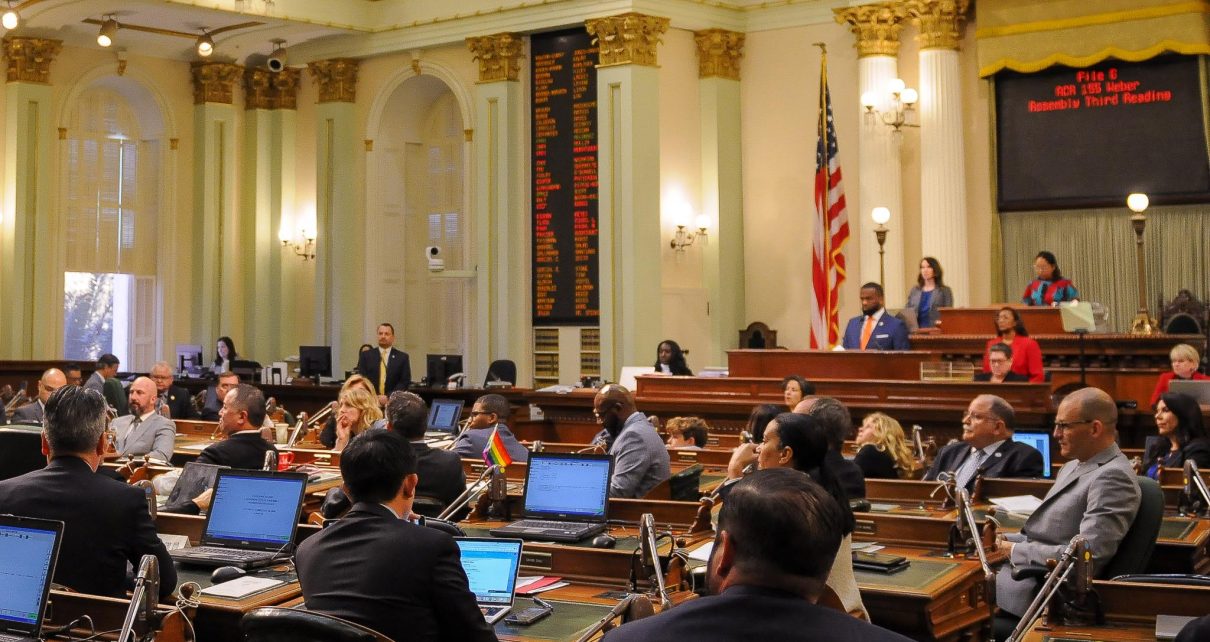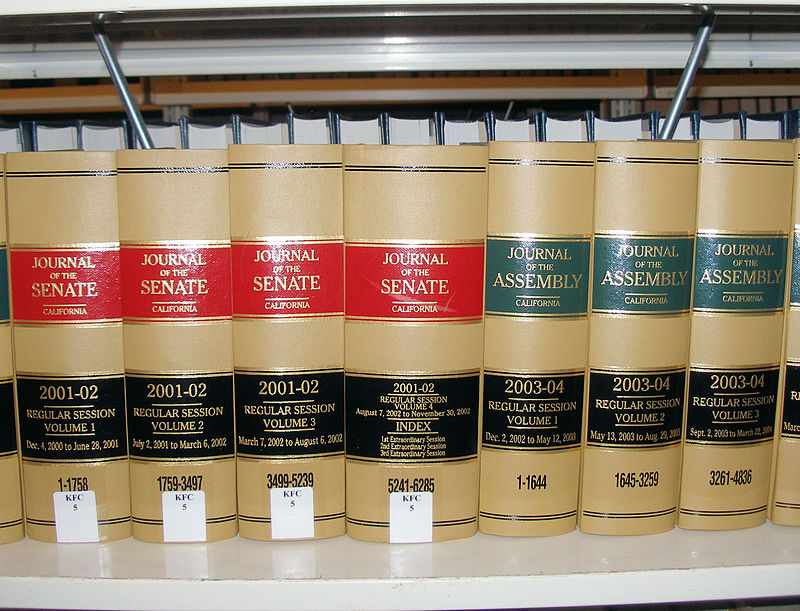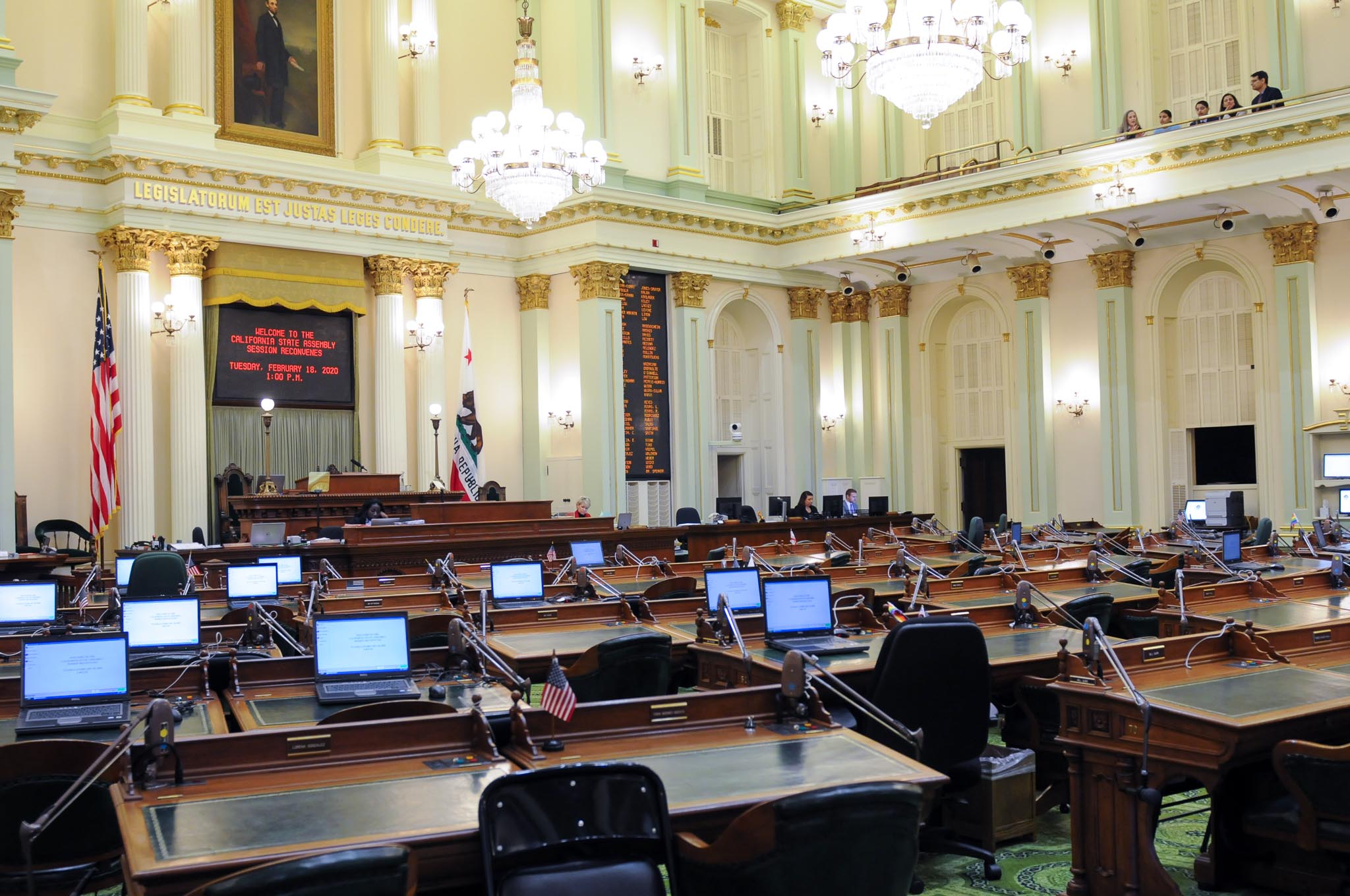
California State Assembly. (Photo: Kevin Sanders for California Globe)
Contingent Enactment Versus Double-Jointing Amendments
Double jointing is not driven primarily by policy considerations
By Chris Micheli, September 10, 2023 6:56 am
“Contingent enactment” amendments are found in a bill in order to effectively connect a bill to another action in order for that bill to become operative. There are several methods in which to do this, such as contingent upon a budget appropriation, or a federal law being repealed, or another bill being enacted, etc.
A common form of contingent enactment language is connecting two bills so that one bill does not become operative unless another bill also takes effect, even if it has passed both houses and is signed by the Governor. Generally, contingent enactment language is used for policy reasons rather than to resolve technical issues. Contingent enactment language makes the policy goals contained in one bill dependent upon the policy goals contained in another bill.
The following is an example of contingent enactment language from a 2023 Session bill:
SEC. 2.
This act shall become operative only if Assembly Bill 39 of the 2023–24 Regular Session is enacted and takes effect on or before January 1, 2024.
On the other hand, double jointing requires technical amendments prepared by the Office of Legislative Counsel that will prevent the amended bill from “chaptering out” the provisions of another bill when both bills amend the same code section. According to Legislative Counsel, “double-jointing amendments to a bill provide that the amended bill does not override the provisions of another bill, where both bills propose to amend the same section of law.”
As a result, unlike contingent enactment amendments, double jointing is not driven primarily by policy considerations. Rather, double-jointing is a solution to the technical problem known as “chaptering out.”
Double jointing amendments are used to prevent this chaptering out problem from occurring by allowing all of the changes to a code section proposed by two or more bills to take effect. The double-jointing language must be put into both measures in order to be effective.
In the following example from a bill from the 2023 Session, two types of double-jointing amendments are found. In the first plus section, there is the standard double-jointing language in which the provision is to become operative if the three tests are met:
SEC. 3.
Section 2.5 of this bill, which adds Section 527.8 to the Code of Civil Procedure, includes provisions proposed to be added in that section by Senate Bill 553. Section 2.5 of this bill shall only become operative if (1) both bills are enacted and become effective on or before January 1, 2024, (2) each bill adds Section 527.8 to the Code of Civil Procedure, and (3) this bill is enacted after Senate Bill 553, in which case Section 2 of this bill shall not become operative.
In the second plus section below, there is a “reverse” double-jointing amendment in which the provision will not become operative if the two tests are met:
SEC. 4.
Section 2 of this bill adds Section 527.8 to the Code of Civil Procedure, which is also proposed to be added by Senate Bill 553. Section 2 of this bill shall not become operative if (1) both bills are enacted and become effective on or before January 1, 2024, (2) each bill adds Section 527.8 to the Code of Civil Procedure, and (3) Senate Bill 553 is enacted after this bill.
Finally, SB 747 from the 2023 Session is an example of a bill that contains both double-jointing and contingent enactment language in the same bill. The first section provides double-jointing language, while the second section provides contingent enactment language:
SEC. 13.
Section 1.5 of this bill incorporates amendments to Section 54221 of the Government Code proposed by both this bill and Assembly Bill 480. That section shall only become operative if (1) both bills are enacted and become effective on or before January 1, 2024, (2) each bill amends Section 54221 of the Government Code, and (3) this bill is enacted after Assembly Bill 480, in which case Section 1 of this bill shall not become operative.
SEC. 14.
This act shall become operative only if Assembly Bill 480 of the 2023-24 Regular Session is enacted and becomes effective.
- Proration of Estate Taxes - February 28, 2026
- Corporations Commissioner Powers - February 27, 2026
- Death Deeds in California - February 27, 2026




